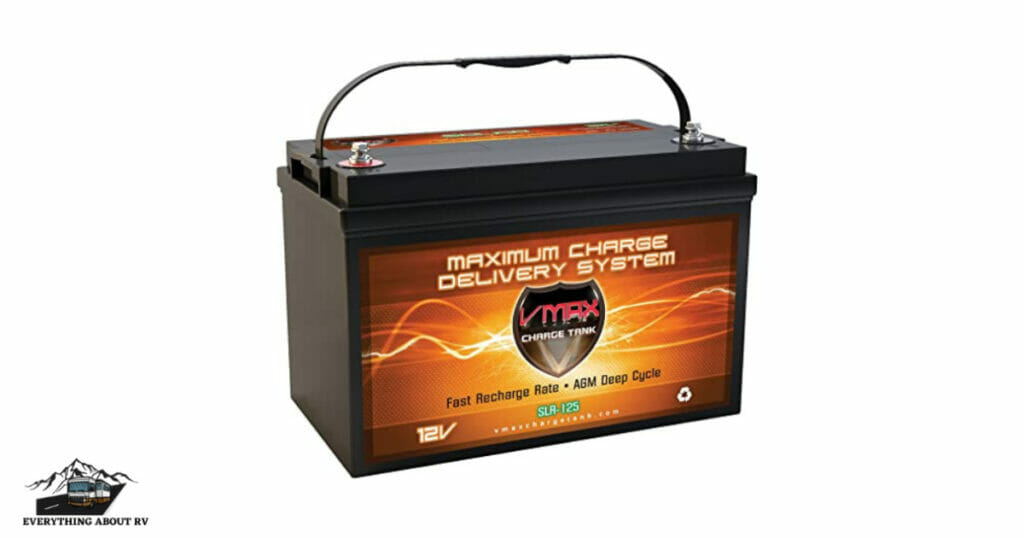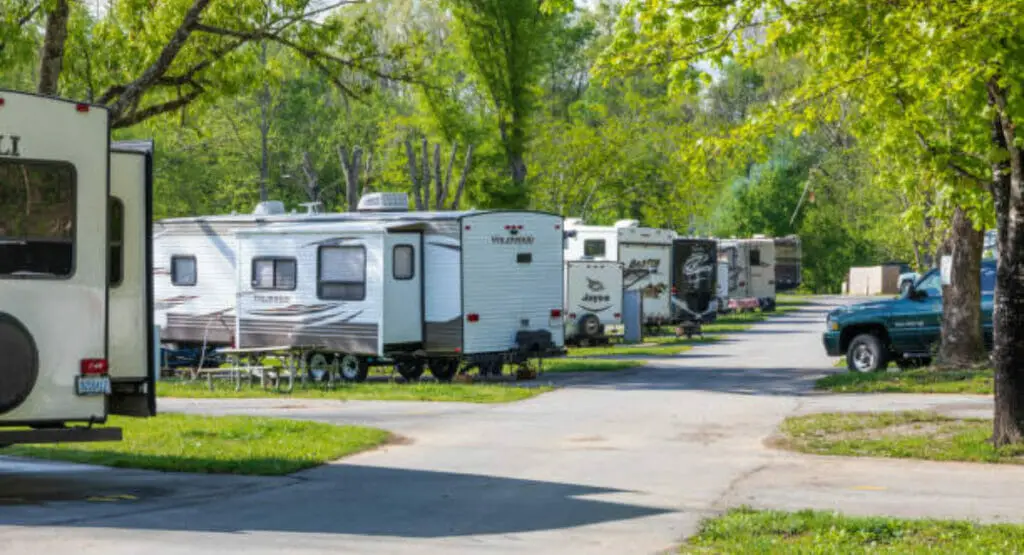RV batteries are an essential component of any recreational vehicle because they supply the electricity needed to power appliances and systems like lights, freezers, and air conditioners. Camping vacations can rapidly become uncomfortable and inconvenient without a properly operating RV battery. In this post, we’ll look at why your RV battery isn’t charging while plugged in, as well as how to troubleshoot and resolve the problem. Understanding the causes of this problem and taking the steps outlined in this article will ensure that your RV battery is fully charged and ready to power your next camping trip.
I. Reasons Why RV Battery Is Not Charging
1. Bad Electrical Connections:
A plugged-in RV battery may not charge for various reasons, including faulty electrical connections. The battery may not be charged properly if the connections are loose or corroded. Start by looking through the battery connections and terminals to resolve this problem. Make sure they are spotless and corrosion-free. If you see any connections that are too loose, use a spanner to tighten them.
2. Tripped Circuit Breaker:
A tripped circuit breaker is another potential cause of your RV battery’s failure to charge while plugged in. A tripped circuit breaker will stop the current from flowing, which will stop the battery from charging. Locate the breaker box, which is often close to the converter, before attempting to reset it. Locate the tripped breaker, flick it off, and then flip it back on to reset it.
3. Faulty Battery:
A bad battery may be to blame if your RV battery isn’t charging while plugged in. An outdated or broken battery may cause charger problems. Check the voltage of the battery with a multimeter. It could be necessary to replace the battery if the voltage is less than 12.4 volts.
4. Converter Problems:
Converter problems can also cause an RV battery to not charge while plugged in. It’s possible that a malfunctioning converter isn’t charging the battery properly. Test the voltage output using a multimeter to identify converter issues. The converter might need to be fixed or replaced if the output exceeds the expected range.
II. Troubleshooting and Fixing the Issue
1. Examine the Electrical Connections:
Use a wire brush to clean the terminals if you see any corrosion. To tighten any connections that may be slack, use a spanner.
2. Reset the tripped circuit breaker:
To troubleshoot and fix a tripped circuit breaker, first, locate the breaker box, which is typically near the converter. Locate the tripped breaker, flick it off, and then flip it back on to reset it.
3. Test the Battery and Replace It If Faulty:
It may be necessary to replace the battery if the voltage is less than 12.4 volts. First, unplug the battery cables from the RV and remove the battery. The cables should then be reconnected after changing the battery.
4. Repair or Replace Converter:
Check the voltage output with a multimeter to identify and repair converter issues. The converter might need to be fixed or replaced if the output exceeds the expected range. Take your RV to a qualified technician who can accurately identify and resolve the problem if you are not confident handling the converter repair yourself.
III. why does my rv battery keep dying??
There could be several reasons why an RV battery keeps failing.
1. The battery has worn out
One probable explanation is that the battery has worn out and needs to be replaced. RV batteries normally have a lifespan of three to five years, and if your battery is nearing the end of its life, it may not keep a charge as well as it once did.
2. The battery is not adequately charged
If your RV’s charging mechanism isn’t working properly, or if you’re not plugging in your RV frequently enough, the battery may not be getting the charge it requires.
3. Leaving lights or appliances on
Other potential causes include leaving lights or appliances on when not in use or having a parasitic pull from an accessory that draws electricity even when the RV is not in use. It is recommended that you have your RV evaluated by a professional technician who can assess the problem and recommend a solution to determine the cause of your battery problems.
4. Low Power Battery
Another possibility for a dying RV battery is that it has been abused. If you operate high-power appliances or devices for extended periods, such as an air conditioner or a high-wattage stereo, your battery may not be able to keep up. In this case, a larger battery and the use of a generator or solar panels to supplement your RV’s power supply may be advantageous.
It’s also critical to keep your battery in good working order. This includes checking the water level regularly and adding distilled water as needed, as well as keeping the battery clean and corrosion-free. Neglecting to manage your battery could shorten its life and cause it to die sooner.
5. Temperature
Harsh temperatures might have an impact on the operation of your RV battery. If you park your RV in extreme heat or cold, the battery may not be able to keep a charge as efficiently as it would in more moderate temperatures. In this instance, it may be beneficial to park your RV in a more temperate region or to invest in a battery built to function better in extreme conditions.
Overall, several variables might lead to a failing RV battery. Understanding these variables and taking action to solve them will help extend the life of your battery and guarantee that your RV has enough power to run properly.
Conclusion
An RV battery that won’t charge can be very annoying, especially if you’re out camping. But, armed with the information from this article, you may quickly identify and resolve the issue. You may ensure that your battery is constantly charged and prepared to power your RV appliances and systems by inspecting the electrical connections, resetting the tripped circuit breaker, testing and replacing a defective battery or repairing or replacing a defective converter. Take the required measures to keep your RV battery operating correctly to avoid letting a dead battery ruin your camping experience.



